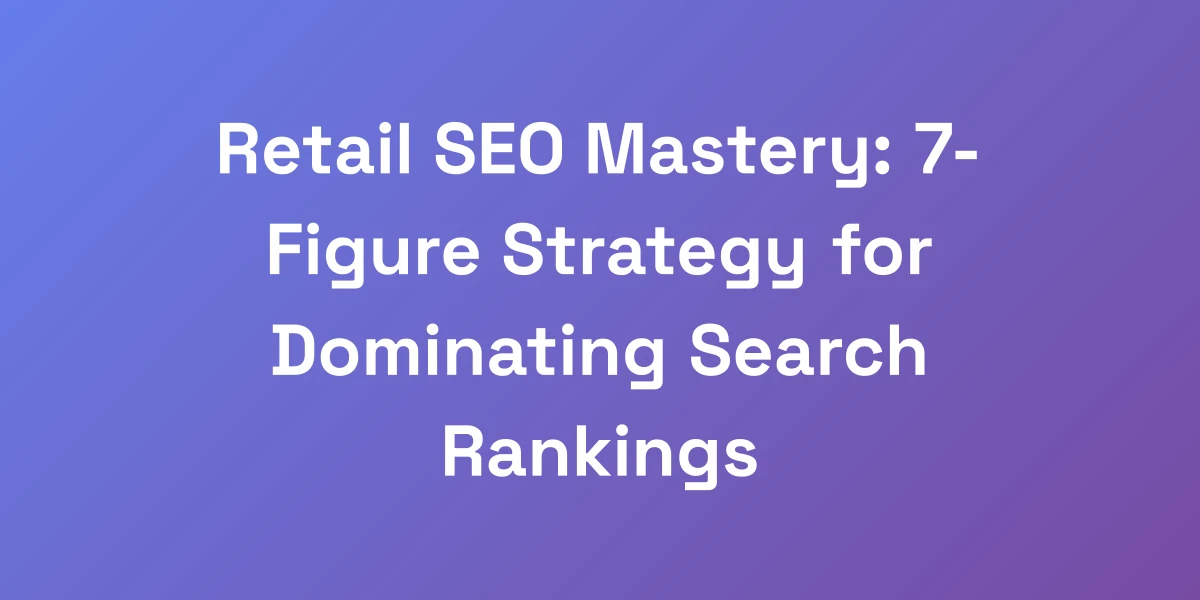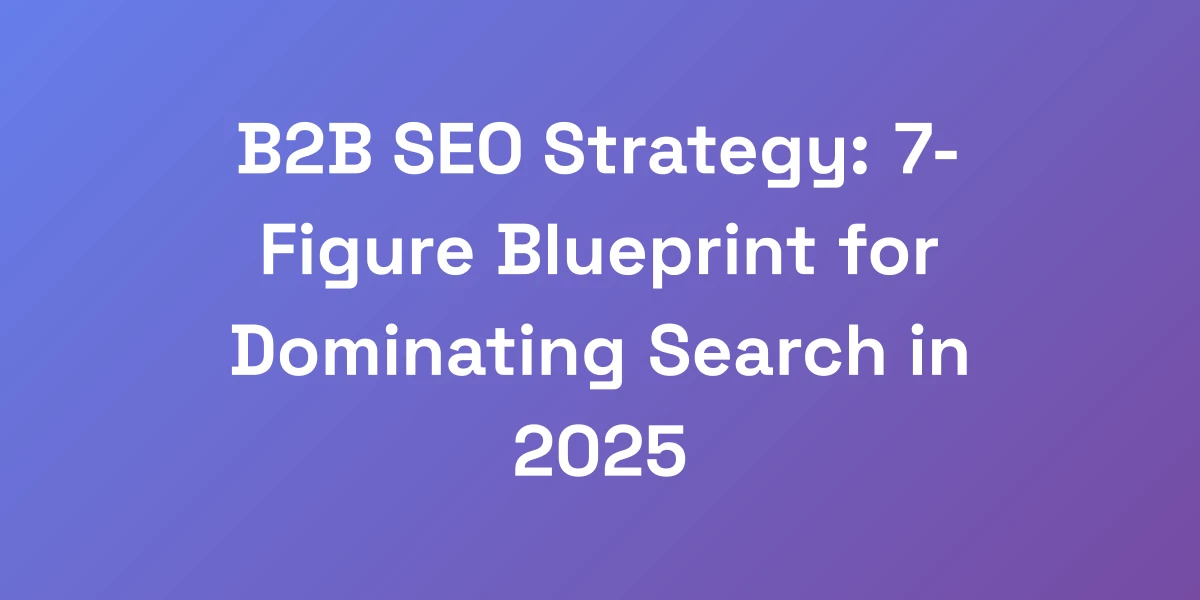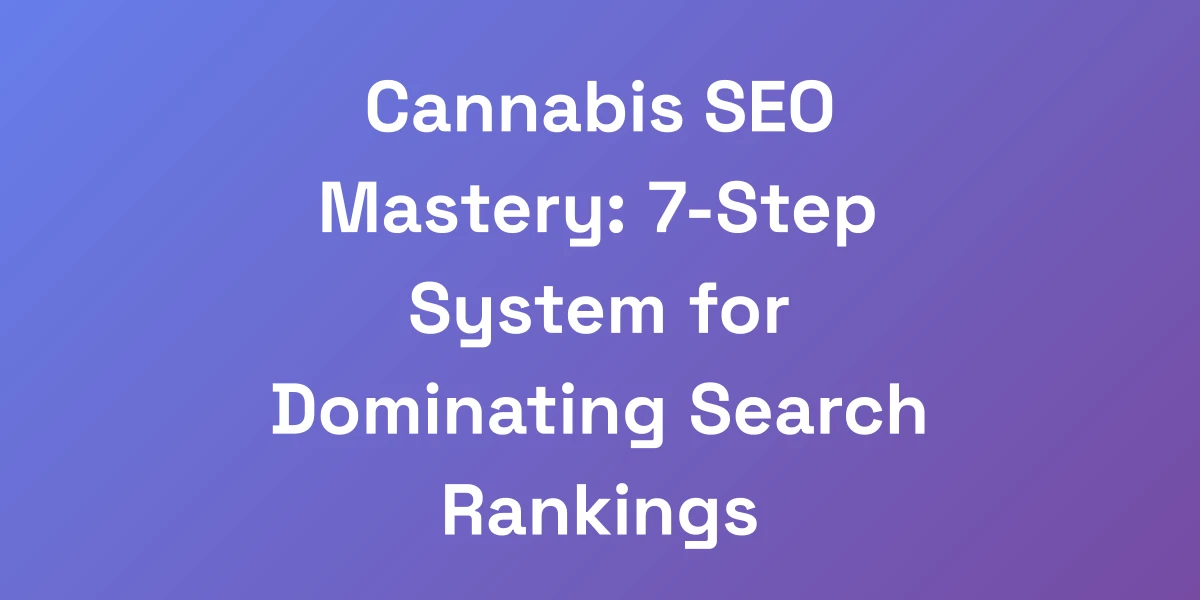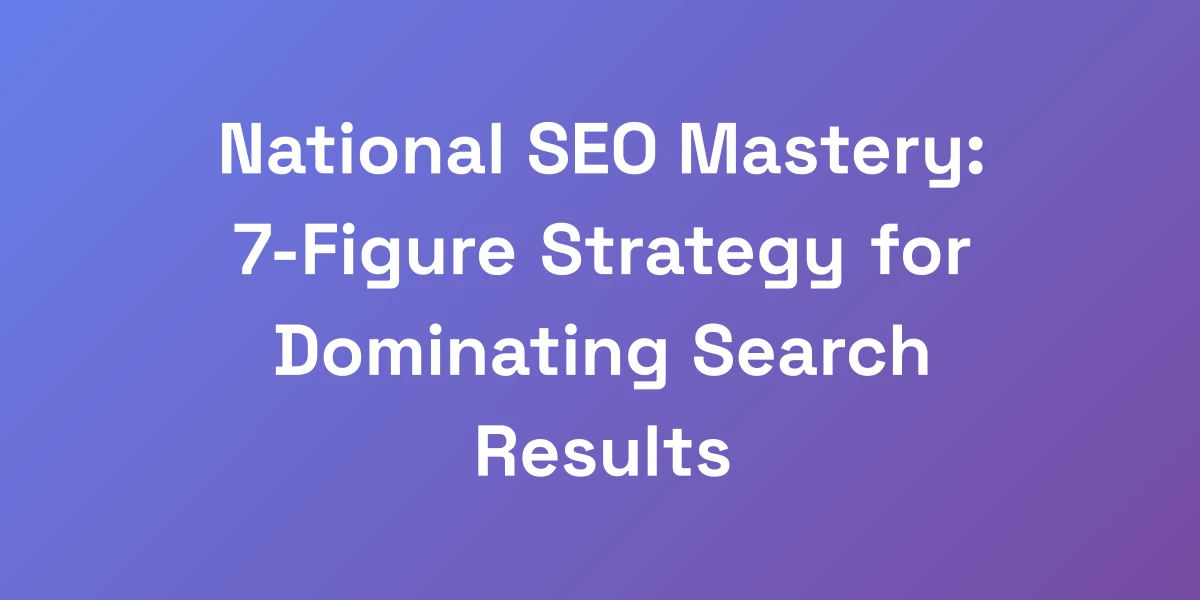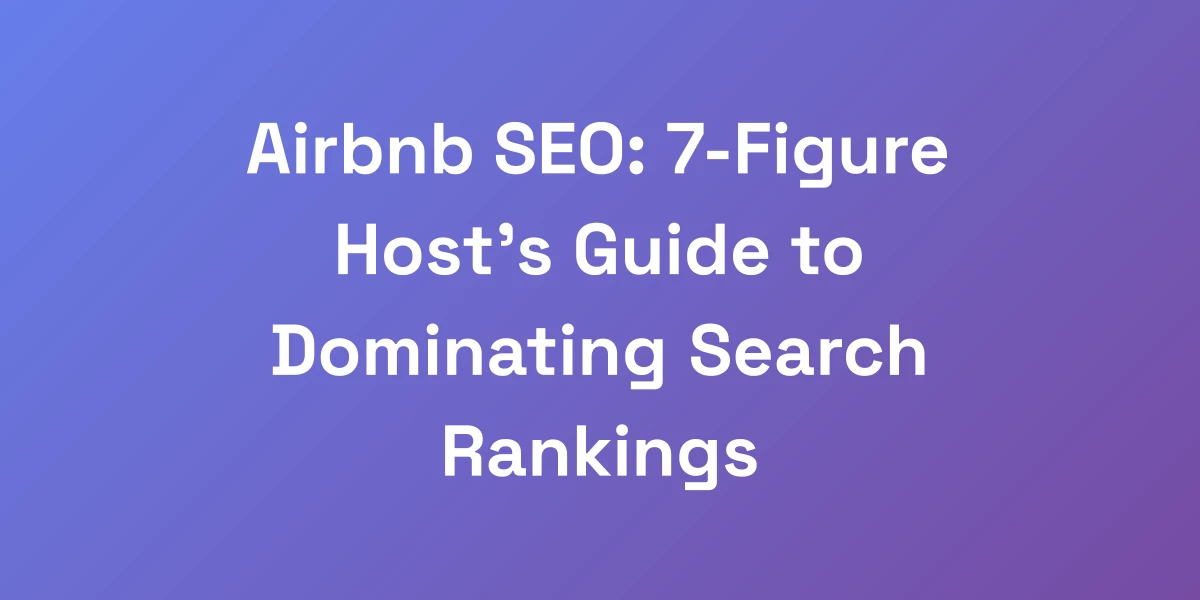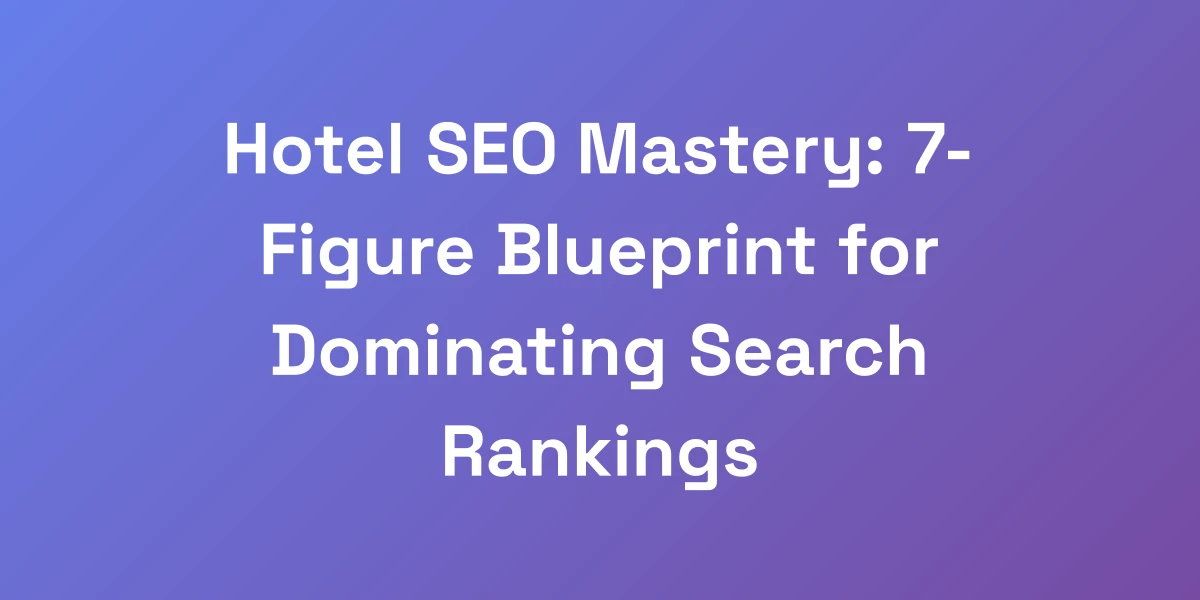
Hotel SEO Mastery: 7-Figure Blueprint for Dominating Search Rankings
Mar 5, 2025 | By [email protected]
Introduction
We’re about to uncover a secret that’s been quietly draining profits from the hospitality industry. 93% of hotel websites are leaving serious money on the table through amateur SEO mistakes. Imagine having a fully booked hotel, but still watching a chunk of your revenue vanish because your online presence isn’t optimized.
Why is this happening? It’s not due to a lack of effort or mediocre services. It’s about understanding the fundamental shifts in hotel search behavior and leveraging them to create an unstoppable revenue machine.
The difference between a 7-figure hotel and a struggling one often comes down to their grasp of core SEO principles. Are you ready to transform your hotel’s online presence and dominate search rankings? Let’s dive into the blueprint that will take your hotel from barely surviving to thriving in the digital landscape.
Why Most Hotels Are Bleeding Money Through Poor SEO
Let’s get real: most hotels are hemorrhaging potential revenue because their SEO strategies are stuck in the Stone Age.
The Real Cost of Ignoring Hotel SEO
Think about this—direct bookings accounted for just 32% of online revenue in Asia and 28.8% in Europe in 2023. The rest? Mushrooms into OTAs, or Online Travel Agencies, siphoning off a big slice of your earnings.
But what does that mean for you? Every visitor who ends up on an OTA instead of your site is a missed opportunity. Those commission fees, ranging from 15% to 30%, are eating away at your profits.
Here’s an actionable tip: start by auditing your current SEO strategy to see where you’re losing visibility to OTAs. Implementing a strong SEO foundation can redirect that traffic back to your website, boosting your direct bookings and keeping more money in your pocket.
Why Traditional SEO Advice Fails Hotels
Most SEO guides out there are one-size-fits-all, but hotels have unique needs. Traditional advice often misses the mark because it doesn’t account for the specific behaviors of travelers looking to book stays.
For instance, generic keyword strategies might focus on high-volume terms but ignore seasonal fluctuations and local event-driven search patterns. This disconnect means you’re not targeting guests who are ready to book, but rather those still in the information-gathering phase.
So, how can you bridge this gap? Tailor your SEO approach to the hotel industry by focusing on high-intent keywords and local search optimization. This ensures your site attracts guests who are poised to convert from browsers to bookers.
The New Rules of Hotel Search Rankings
The SEO game has evolved, and the rules have changed. It’s no longer just about stuffing keywords into your site. Now, it’s about creating a seamless experience that aligns with how travelers search and what they expect when they find your hotel online.
Consider relevance, proximity, and prominence—the three pillars that determine your rank in Google’s hotel pack. Ensuring your Google Business Profile is optimized, your site is mobile-friendly, and you have a robust local presence can significantly boost your rankings.
Furthermore, integrating schema markup can help search engines better understand your offerings, making your site more attractive in SERPs. It’s time to embrace these new rules to climb the search rankings ladder.
Case Study: How One Hotel 10x’d Their Direct Bookings
Let’s talk about a real-world example. We worked with a boutique hotel struggling to compete with big names on OTAs. Their site was decent but lacked strategic SEO implementation.
By revamping their SEO strategy—focusing on local keywords, optimizing their Google Business Profile, and enhancing their content—we helped them increase direct bookings by 10x within six months. The key was understanding their unique selling points and aligning them with targeted search intents.
This transformation wasn’t magic. It was a result of meticulous planning, execution, and continuous optimization. It shows that with the right SEO blueprint, any hotel can achieve remarkable growth.
The Three Pillars of Modern Hotel SEO
To master hotel SEO, we rely on three critical pillars: Local Optimization, Technical Excellence, and Content Strategy.
- Local Optimization: Dominate local searches by optimizing your Google Business Profile, building local links, and creating location-specific landing pages.
- Technical Excellence: Ensure your website architecture, speed, and mobile optimization are top-notch. Implementing schema markup is crucial for enhancing search engine understanding.
- Content Strategy: Develop engaging, high-intent content that converts visitors into bookers. Focus on destination content, seasonal themes, and user-generated content to drive relevance and traffic.
Balancing these pillars is what sets apart a hotel that thrives from one that merely survives in the competitive online landscape.
Creating an Unbeatable Local Search Presence
Here’s the deal—we’re dominating local search, and it’s our fastest path to profit. Local visibility translates directly into more foot traffic and bookings.
Google Business Profile Optimization Tactics
Your Google Business Profile is your front door online. Optimizing it means providing accurate information, high-quality images, and engaging descriptions that highlight your unique offerings.
Actionable tips:
- Ensure your address, phone number, and operating hours are up to date.
- Upload high-resolution images showcasing your rooms, amenities, and surroundings.
- Use keywords strategically in your business description to improve relevance.
- Respond promptly to reviews to boost your profile’s prominence.
Local Link Building Strategies That Actually Work
Building local links is about creating meaningful connections within your community. This not only boosts your SEO but also establishes your hotel as a local authority.
Here’s how:
- Partner with local businesses for cross-promotions.
- Host events or sponsor local activities that earn you backlinks from event sites.
- Create high-quality content that other local sites want to reference.
Remember, it’s not just about quantity but the quality of these links. Focus on relevance and authority to maximize their impact on your rankings.
Creating Location-Specific Landing Pages
Each location deserves its own spotlight. Crafting location-specific landing pages can significantly enhance your visibility for targeted searches.
Steps to take:
- Research and incorporate local keywords relevant to each location.
- Highlight unique attractions, events, and amenities specific to the area.
- Use high-quality images and testimonials from guests who have visited specific locations.
This tailored approach ensures that travelers find exactly what they’re looking for, increasing the likelihood of direct bookings.
Leveraging Local Events and Attractions
Integrating local events and attractions into your SEO strategy can drive targeted traffic to your site. When travelers search for events in your area, having your hotel prominently featured can capture those ready-to-book guests.
Here’s how to leverage them:
- Create content around major local events, highlighting how your hotel is the perfect base.
- Optimize for event-specific keywords to align with travelers’ search intents.
- Offer special packages or discounts tied to these events to incentivize bookings.
By aligning your SEO strategy with local happenings, you become the go-to accommodation for event-goers.
Mobile Optimization for Local Search
With 68% of online traffic for travel and hospitality websites coming from mobile devices, ensuring your site is mobile-optimized isn’t just important—it’s essential.
Focus on:
- Responsive design that adapts seamlessly to any screen size.
- Fast loading times to prevent mobile users from bouncing.
- Easy navigation and clear calls-to-action to streamline the booking process.
Remember, mobile-first is the mantra. Your mobile site should offer the same level of functionality and aesthetic appeal as your desktop version.
Managing and Scaling Local Reviews
Reviews are the lifeblood of local SEO. Positive reviews not only enhance your reputation but also improve your search rankings.
Best practices include:
- Encourage satisfied guests to leave reviews that can boost your SEO on your Google Business Profile and other relevant platforms.
- Respond professionally to all reviews, addressing concerns and thanking guests for positive feedback.
- Monitor review sites regularly and use feedback to improve your services continuously.
- Implement automated email follow-ups post-stay to gently remind guests to leave a review.
By actively managing and scaling your reviews, you build trust with potential guests and signal to search engines that your hotel is reputable and reliable.
Technical SEO Secrets for Hotel Websites
Listen carefully: technical SEO is where most hotel websites completely drop the ball. But here’s the thing—you don’t need to be a coding genius to get this right.
Site Architecture for Maximum Conversions
Your site’s architecture plays a pivotal role in both user experience and SEO. A well-structured site ensures that visitors can easily find what they’re looking for, which in turn boosts your conversion rates.
Actionable steps:
- Create a logical hierarchy with clear navigation menus.
- Use internal linking to guide users to key booking pages.
- Ensure that important pages are no more than three clicks away from the homepage.
A seamless site structure not only helps users but also allows search engines to crawl and index your site more efficiently. Additionally, integrating enterprise resource planning (ERP) software can further enhance your operational efficiency, indirectly benefiting your SEO efforts by ensuring data accuracy and streamlined processes.
Schema Markup for Hotels
Implementing schema markup can dramatically improve how your site appears in search results. This structured data helps search engines understand your content better and display rich snippets.
Types of schema to use:
- Local Business Schema: Includes details like address, phone number, and operating hours.
- Hotel Schema: Provides information about amenities, room types, and pricing.
- Review Schema: Incorporates star ratings and customer testimonials.
Using schema markup increases your chances of appearing in the coveted hotel pack, enhancing visibility and click-through rates.
Mobile-First Optimization Techniques
With mobile accounting for 68% of online traffic for travel websites, focusing on mobile optimization is non-negotiable.
Key techniques include:
- Responsive design that adapts to any device.
- Accelerated Mobile Pages (AMP) for faster loading times.
- Touch-friendly navigation and buttons to enhance user experience.
Mobile-first isn’t just a strategy—it’s a necessity for staying competitive in today’s travel market.
Page Speed Optimization
A website that loads slowly can frustrate visitors, leading them to leave before converting. The ideal loading time is between 2-10 seconds. Users will abandon the website if it takes more than 10 seconds to load.
Ways to boost page speed:
- Compress images without sacrificing quality.
- Leverage browser caching to speed up repeat visits.
- Minimize CSS and JavaScript files.
Investing in page speed optimization can significantly reduce bounce rates and improve your site’s overall performance.
Handling Multiple Language Versions
If your hotel attracts an international clientele, managing multiple language versions of your site is crucial. This not only enhances user experience but also improves your SEO for non-English searches.
Strategies to implement:
- Use hreflang tags to indicate language and regional targeting to search engines.
- Ensure translated content is high-quality and culturally appropriate.
- Maintain a consistent site structure across different language versions.
Properly handling multiple languages can expand your reach and attract a broader audience.
Technical Audit Checklist
Regular technical audits ensure your site remains optimized and free of issues that could hinder performance.
Include these in your checklist:
- Check for broken links and fix them promptly.
- Ensure all pages are indexed by search engines.
- Verify that your site is secure with HTTPS.
- Analyze and improve your site’s mobile usability.
- Audit your schema markup for accuracy and completeness.
Consistency in technical audits can prevent SEO pitfalls and keep your site running smoothly.
Content Strategy That Drives Direct Bookings
Stop creating generic blog posts that nobody reads. Your content strategy needs to be a direct booking machine.
High-Converting Room Description Templates
Your room descriptions are more than just details—they’re sales pitches. A compelling description can transform a casual browser into a confirmed booking.
Elements of high-converting descriptions:
- Use vivid, descriptive language to paint a picture of the experience.
- Highlight unique amenities and features.
- Include clear CTAs that encourage immediate booking.
For example, instead of saying “Spacious room with a view,” say “Wake up to breathtaking ocean views in our spacious deluxe suites, complete with king-sized beds and luxurious amenities.”
Creating Destination Content That Ranks
Destination content is about showcasing the local area and attractions, positioning your hotel as the perfect base for exploring.
To create effective destination content:
- Write detailed guides on local attractions and activities.
- Incorporate local keywords naturally throughout the content.
- Use high-quality images and maps to enhance the user experience.
This approach not only attracts traffic but also provides value to potential guests, increasing the likelihood of bookings.
Seasonal Content Planning
Seasonal content aligns your marketing with peak travel times and local events, ensuring your hotel stays relevant all year round.
Steps to plan seasonal content:
- Identify key travel seasons and local events throughout the year.
- Create content that highlights special offers, packages, and events during these times.
- Optimize your content with seasonal keywords to capture timely search traffic.
For instance, during the summer, you might create content around “Top Summer Activities in [Your City]” or offer special summer getaway packages.
User-Generated Content Strategy
Encouraging guests to create and share content can boost your SEO and build trust with potential guests.
How to leverage user-generated content:
- Incentivize guests to leave reviews and share their experiences on social media.
- Feature guest photos and testimonials on your website.
- Create a branded hashtag to curate and showcase user-generated content.
User-generated content not only provides authentic testimonials but also enhances your site’s credibility and search visibility.
Visual Content Optimization
High-quality visuals are essential for capturing attention and conveying the quality of your hotel. Optimizing these visuals ensures they contribute to your SEO rather than hinder it.
Best practices for visual content:
- Use high-resolution images that load quickly to enhance user experience.
- Optimize image file names and alt text with relevant keywords.
- Incorporate infographics and videos to enrich your content offerings.
Effective visual content can engage visitors longer, reducing bounce rates and increasing the chances of conversion.
Content Distribution Framework
Creating great content is just half the battle. Distributing it effectively ensures it reaches your target audience and drives traffic to your site.
Implement a robust distribution framework:
- Promote your content through social media channels.
- Leverage email marketing to share content with your subscriber base.
- Use SEO techniques to ensure your content ranks well in search engines.
- Collaborate with local influencers and partners to amplify your reach.
A well-executed distribution strategy ensures that your content works tirelessly to attract and convert potential guests, much like Syndacast’s remarkable success in high ROI for hotel campaigns in 2023.
Advanced Keyword Research for Hotels
Let me be crystal clear: traditional keyword research doesn’t work for hotels. You need a completely different approach that takes into account seasonal demand, local events, and traveler intent. For comprehensive strategies, refer to the ultimate guide to hotel SEO for multi-location success.
Seasonal Keyword Mapping
Seasonal keyword mapping involves identifying and targeting keywords that spike during specific times of the year.
Steps to implement:
- Analyze past booking data to identify peak seasons and events.
- Research keywords that align with these periods, such as “summer getaway in [Your City]” or “winter holiday packages.”
- Create and optimize content around these seasonal keywords to capture timely search traffic.
This strategy ensures your hotel remains visible during critical booking times, maximizing your occupancy rates.
Long-Tail Opportunities in Hotel Search
Long-tail keywords are specific phrases that tend to have lower search volume but higher intent.
Why they matter:
- They attract guests who are closer to making a booking decision.
- Less competition means easier ranking opportunities.
- They can be highly relevant to your unique offerings.
Examples of long-tail keywords:
- “Pet-friendly boutique hotels in [Your City]”
- “Luxury spa resorts near [Local Attraction]”
- “Affordable family-friendly hotels in [Your City]”
Focusing on these keywords can drive highly targeted traffic that is more likely to convert into bookings.
Competitor Keyword Analysis
Understanding what keywords your competitors are ranking for can uncover opportunities and gaps in your own strategy.
How to conduct competitor keyword analysis:
- Identify your main competitors in the local market.
- Use tools like Ahrefs or SEMrush to analyze their keyword profiles.
- Identify keywords where they rank well and assess if you can target those or find related opportunities.
This insight allows you to refine your keyword strategy, ensuring you’re targeting the most effective terms for your market.
Intent-Based Keyword Selection
Understanding the intent behind a search query ensures that your content meets the needs of potential guests.
Types of intent:
- Informational: Users seeking information (e.g., “best time to visit [Your City]”).
- Navigational: Users looking for a specific website or location (e.g., “[Your Hotel Name] contact”).
- Transactional: Users ready to complete a booking (e.g., “book luxury hotel in [Your City]”).
By aligning your keyword strategy with user intent, you attract guests who are ready to book, increasing your conversion rates.
Tools and Technology Stack
Leveraging the right tools can streamline your keyword research and SEO efforts.
Essential tools include:
- Ahrefs: For comprehensive keyword research and competitor analysis.
- SEMrush: To track keyword rankings and identify new opportunities.
- Google Search Console: To monitor site performance and uncover keyword data.
- Moz: For additional keyword insights and SEO metrics.
Integrating these tools into your workflow ensures a data-driven approach to your SEO strategy, maximizing efficiency and effectiveness.
Keyword Implementation Strategy
Identifying the right keywords is just the first step. Implementing them effectively ensures they drive the desired results.
How to implement keywords:
- Incorporate primary keywords into key on-page elements like titles, headers, and meta descriptions.
- Use secondary and long-tail keywords naturally within your content to enhance relevance.
- Ensure keywords are included in your image alt texts and URLs where appropriate.
- Monitor performance and adjust keyword usage based on analytics and search trends.
A well-executed keyword implementation strategy aligns your content with what guests are searching for, driving organic traffic and increasing direct bookings.
Conclusion
We’ve journeyed through the intricate world of hotel SEO, uncovering the strategies that can transform your online presence and boost your direct bookings. From mastering local search to optimizing your technical SEO and crafting compelling content, each pillar plays a crucial role in your SEO success.
The key takeaway? A well-rounded, strategic approach to SEO isn’t just beneficial—it’s essential for thriving in the competitive hotel industry. By implementing these actionable insights, you’re setting your hotel up to dominate search rankings and unlock 7-figure revenues.
Ready to take your hotel’s SEO to the next level? Start implementing these strategies today and watch as your direct bookings soar and your reliance on OTAs diminishes.
We’d love to hear about your SEO journey. What challenges have you faced, and how have you overcome them? Share your experiences in the comments below or reach out to us directly. Let’s dominate the search rankings together!
